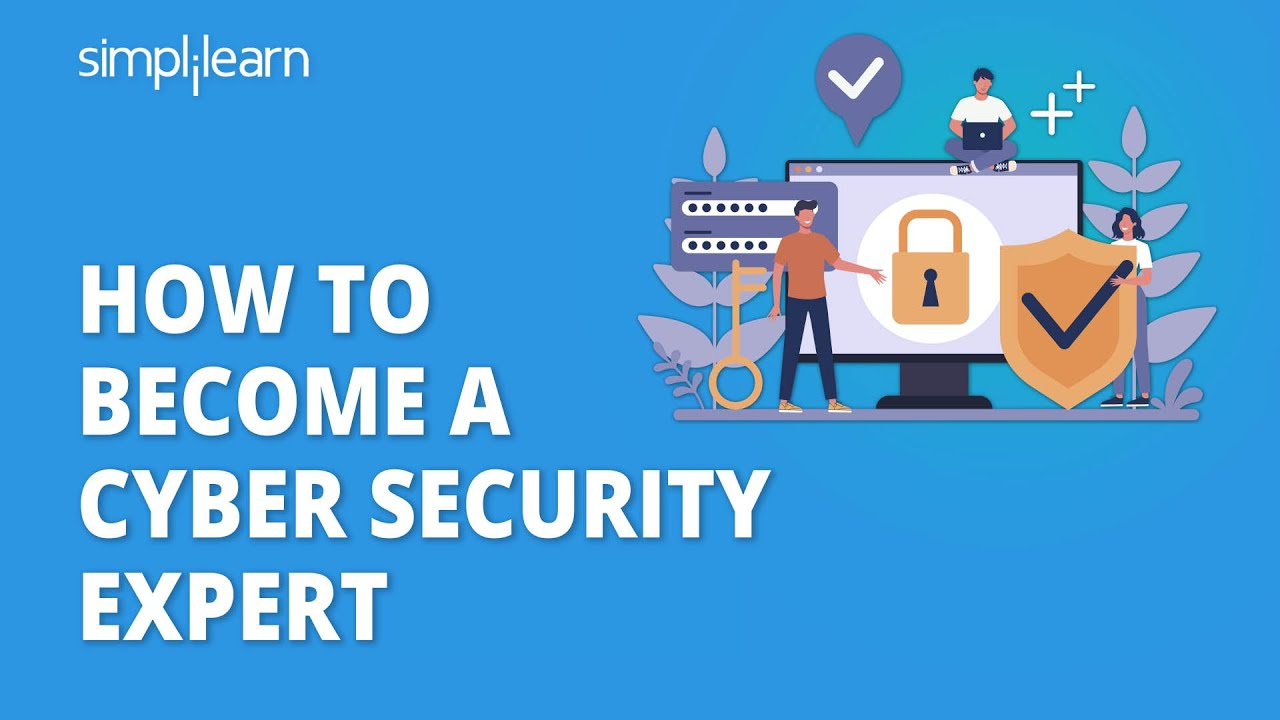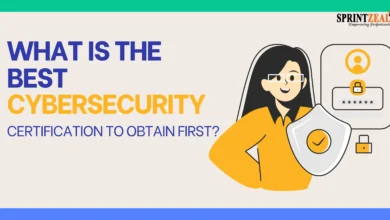How to Become a Cyber Security Specialist (With Tips)
A Cyber-Security post By Olly Pease

A career in cyber security offers both excitement and financial reward for professionals with the right skills, and the global demand for such experts is continually rising. These IT specialists safeguard organizations from data breaches and prevent unauthorized access to networks and devices. Gaining insight into the role and learning how to become a cyber security specialist can help you decide if it’s the right path for you. In this article, we explore what cyber security specialists do and the steps to becoming one.
What is a Cyber Security Specialist?
Cyber security specialists are IT professionals responsible for maintaining the safety of systems and hardware for organizations. They continuously audit IT infrastructure to detect, investigate, and address potential security threats. Their role includes developing innovative security solutions and implementing changes to protect systems from attacks, such as hacking attempts. Some specialists focus on specific areas like operating systems or software types, depending on the organization’s needs.
The job often involves routine tasks, including daily system evaluations to ensure everything runs securely. However, in the event of a serious incident, like a data breach or hack, specialists must respond swiftly and effectively, as time is critical. They address both external and internal risks, including data loss, unauthorized access, and cybercrime. Part of their responsibility is to keep software and systems updated to prevent vulnerabilities. They also advise and train organization members to follow cyber security best practices.
How to Become a Cyber Security Specialist
If you’re interested in becoming a cyber security specialist, the typical path involves education, gaining work experience, and acquiring specialized training. Here’s an outline of the process:
Related: [List of Cyber Security Certifications to Boost Your Career]
1. Acquire Relevant Education
Having expert-level knowledge of computer systems is essential in this field. Some specialists are self-taught, others attend white-hat hacker camps, and some earn certifications or take courses. Another option is obtaining a bachelor’s degree in fields like computer science or cybersecurity. Whatever route you take, it’s crucial to learn about computer systems, networks, data, and how to protect them from cyber threats.
Certification options are plentiful, and it’s important to choose strategically based on your career goals. Popular certifications include the Certified Ethical Hacker (CEH), Certified Information Systems Security Professional (CISSP), and the National Cyber Security Centre’s training programs. These certifications offer both theoretical knowledge and practical experience to help you excel in your career.
2. Choose a Specialism
There are numerous cyber security roles, and as you explore the field, it’s a good idea to choose a specialism early on. This allows you to tailor your training and work experience to a specific area. Some common specialisms include:
- Prevention of data loss
- Digital forensics
- Emergency response
- Application security
- Threat intelligence
- Vulnerability management
- Network security
- Security architecture
Select a specialism that aligns with your interests to stay motivated over time.
Related: [How to Become a Security Engineer: A Handbook]
3. Gain Work Experience
Work experience is a key element that recruiters seek when hiring cyber security specialists. Employers often look for candidates with experience using specific security software or certifications in relevant specializations. You can gain experience through internships, work placement programs, or entry-level roles at cyber security firms. As cyber security is a fast-growing industry, there are ample opportunities for skilled professionals. Freelancing is another way to build a portfolio of experience.
Related: [How to Become an Ethical Hacker: A Comprehensive Guide]
4. Tailor Your CV and Apply for Jobs
Once you’ve gained qualifications, training, experience, and specialization, start applying for jobs that interest you. Tailor your CV to each job by reviewing job descriptions, identifying common keywords, and incorporating them into your CV. This approach helps you stand out to recruiters by demonstrating that you possess the necessary skills and knowledge. Using a summary statement to highlight these attributes can also make it easier for recruiters to quickly see your qualifications.
Cyber Security Specialist Skills
Here are some key skills cyber security specialists use, regardless of their role or specialism:
- Expert-Level IT Skills: Strong knowledge of computers is essential, as the job revolves around securing IT systems. This helps specialists stay ahead of cybercriminals, whose techniques are always evolving.
- Knowledge of Networks, Software, and Hardware: To fully protect an organization, specialists must understand all aspects of IT systems, including networks, software, and hardware, as vulnerabilities can exist anywhere.
- Logic and Reasoning Skills: These abilities help cyber security experts identify the root cause of problems, analyze effects, and use logic to find solutions. Effective problem-solving is critical in this high-pressure industry.
- Knowledge of Hacking Practices: Understanding how hackers operate is key to preventing attacks. Just like police officers study criminal behavior, cyber security specialists need to understand the mindset of cybercriminals.
- Ability to Detect Vulnerabilities: Being proactive in identifying and addressing weaknesses in IT systems helps specialists strengthen security measures and prevent incidents.
- Investigation Skills: When a breach occurs, cyber security specialists are tasked with determining what happened, resolving the issue, and preventing it from happening again. This requires strong investigative skills.
- Strong Communication Skills: Cyber security professionals often collaborate with different members of an organization, and in some cases, law enforcement. Being able to explain issues clearly is important.
- Report-Writing Skills: Specialists write reports on incidents, their resolutions, and future prevention strategies. These reports are crucial for avoiding similar issues in the future.
- Specific Software Knowledge: Depending on your specialization, you may need to learn specific software packages. You can gain this knowledge through on-the-job training, certifications, or self-study, expanding the roles you’re qualified for.
Conclusion
A career as a cyber security specialist presents an exciting and dynamic path with significant opportunities for growth, skill development, and financial reward. As businesses and individuals become more reliant on digital systems, the importance of protecting sensitive information and preventing cybercrime continues to rise. This demand ensures a steady need for highly skilled professionals who can safeguard critical infrastructure, maintain security protocols, and respond swiftly to cyber threats.
To excel in this field, aspiring cyber security specialists must commit to continuous learning and skill acquisition. Whether through formal education like a degree in computer science or cybersecurity, self-directed learning, or industry-recognized certifications, building a strong foundation in IT systems and security practices is crucial. Specializing in areas such as network security, threat intelligence, or digital forensics allows you to align your career with your interests and the evolving needs of the industry.
Gaining hands-on experience through internships, work placements, or freelance projects not only sharpens your technical skills but also makes you a competitive candidate in the job market. Moreover, tailoring your CV and applying for roles that match your expertise ensures that you stand out to employers and recruiters in this highly sought-after field.
Ultimately, cyber security specialists play an integral role in today’s interconnected world. Their work is critical in defending organizations from data breaches, securing digital assets, and mitigating cyber threats that could result in severe financial or reputational damage. By pursuing this career, you have the opportunity to make a meaningful impact on the safety and stability of the digital landscape, while also enjoying the personal and professional rewards that come with being at the forefront of cyber defense.
Hi I'm Olly, Co-Founder and Author of CybaPlug.net.
I love all things tech but also have many other interests such as
Cricket, Business, Sports, Astronomy and Travel.
Any Questions? I would love to hear them from you.
Thanks for visiting CybaPlug.net!






